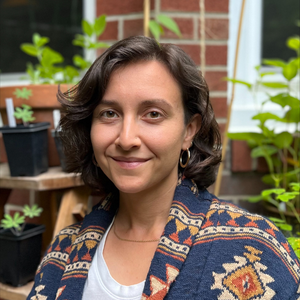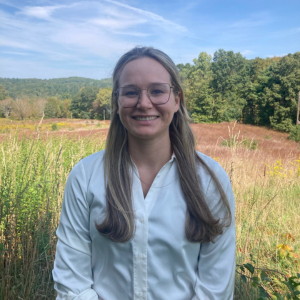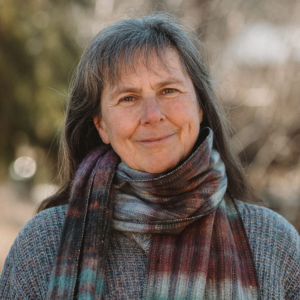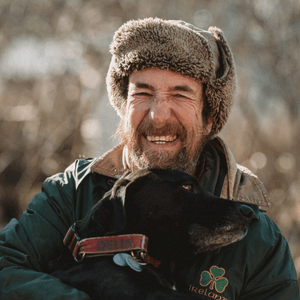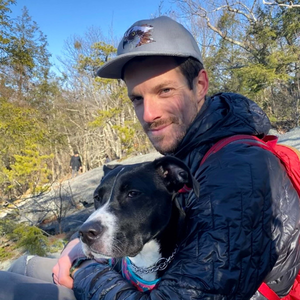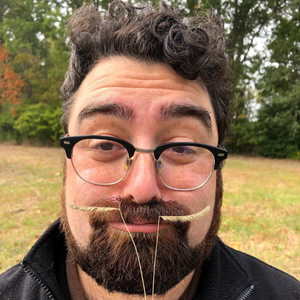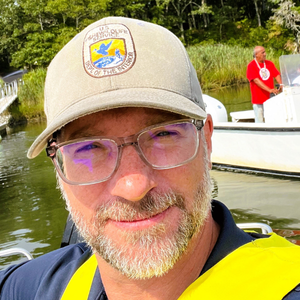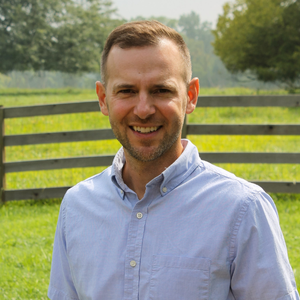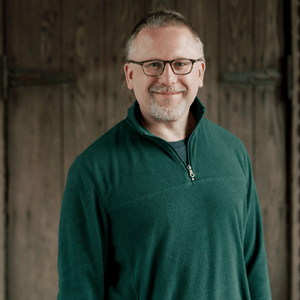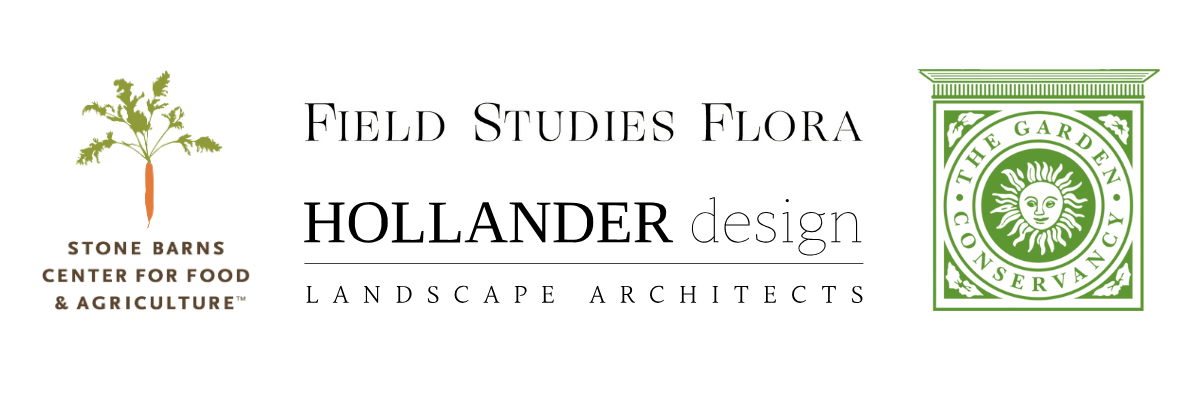Registration Closed
Donate Now
Help support future events like this by making a donation.
Ticket Price: $100
Ticket price includes morning presentations, coffee and pastries, afternoon tours, Perfect Earth's Nature-Based Gardening booklet, and a buffet lunch by the Cafe at Blue Hill at Stone Barns.
Please scroll to the bottom of the page for tour site information.
A link will be sent to all registrants to sign up for afternoon tours.
Managing Meadows: Best Practices for Biodiversity and Beauty
Thursday, November 7, 2024 | 9:00 am-4:00 pm
Stone Barns Center for Food & Agriculture
630 Bedford Rd, Tarrytown, NY 10591
Learn best practices for managing established meadows--from cultivating and protecting wildlife, to handling invasives, to using historic practices like burning and grazing. Panels and presentations by experts in the morning will be followed by a buffet lunch from Stone Barns and site visits in the afternoon.
This symposium has been approved for up to three continuing education credits for the following: LA CES, APLD, NOFA CT AOLCP. (One credit hour per presentation.)
Morning Schedule
9:00-9:30 am | Arrivals
Coffee and pastries by the Cafe at Blue Hill at Stone Barns
9:30-9:40 am | Welcome and Introduction
Welcome by Edwina von Gal
Presentations
9:40-10:40 am | Insects, Turtles, and Birds: How to Support Different Taxa
Bella Ciabattoni (Deputy Director of Horticulture, Brooklyn Bridge Park), Leah Cass (Curator of Natural Resources, Westchester County Parks), and Claudia Knab-Vispo and Conrad Vispo (Co-Coordinators, Hawthorne Valley Farmscape Ecology Program)
Moderated by Sarah Kornbluth (Field Associate, Invertebrate Zoology, American Museum of Natural History)
How can you balance meadow management techniques to support different taxonomic groups--to maximize biodiversity and minimize harm? This panel will explore this question, sharing insights from distinct meadow projects. Panelists will discuss habitat creation, successional dynamics, and management practices that support diverse habitats to meet the needs of various species.
10:45-11:35 am | Taming Unruly Guests: Weed Management Strategies for Meadows
Chris Charpin (Field Operations Manager, Larry Weaner Landscape Associates) and Ethan Dropkin (Associate & Horticultural Specialist, Larry Weaner Landscape Associates)
In this presentation, Chris Charpin and Ethan Dropkin will draw on over three decades of experience from Larry Weaner Landscape Associates to share meadow management techniques for the Northeast, focusing on mechanical weed control and native species promotion. Topics will include evaluating meadow conditions, weed management strategies, and increasing biodiversity based on site-specific goals.
11:40 am-12:30 pm | Grazing and Burning: Utilizing Historic Meadow Management Practices
Ted Kendziora (Biologist, USFWS) and Chad Bitler (Senior Director of Research and Agroecology, Greenacres Foundation)
Moderated by Elijah Goodwin (Ecological Monitoring Director, Stone Barns Center for Food & Agriculture)
How can historic practices like grazing and controlled burns help us manage meadows today? This panel will explore this question, emphasizing how these disturbances can support ecological health. Participants will learn how to align management techniques with landscape goals, evaluate funding sources, determine feasibility, and consider the complexities of project decisions before beginning a meadow restoration or management initiative.
Lunch & Afternoon Tours
12:30-1:30 pm | Lunch
Lunch tray by the Cafe at Blue Hill at Stone Barns
1:30-4:00 pm | Afternoon Tours
Featuring meadows at Lenoir Preserve, Muscoot Farm, The Native Plant Center at Westchester Community College, Round Rock Preserve, Stone Barns Center for Food & Agriculture, Ward Pound Ridge, and more to be announced soon. A link will be sent in advance to all registrants to sign up for afternoon tours.
Tour Site Information
Croton Point Park
Croton-on-Hudson, NY
Croton Point Park is a 508-acre peninsula on the east shore of the Hudson River managed by Westchester County. The park is a popular location for both breeding and migrating birds and birdwatchers. The former Croton landfill was closed in 1986 and repurposed as a native meadow in the 1990s. Over time, the 100-acre meadow developed a dense infiltration of invasive plants, leading to a restoration project initiated by several County agencies between 2019 and 2022. Meadow maintenance with mowing, minimal herbicide use, and biocontrol trials strives to retain its value as bird habitat and for passive recreation.
Jay Heritage Center
Rye, NY
Visit the site of the oldest man-managed meadow in NY State, dated back to the First Peoples settlements in the area. Discover the vision behind its preservation efforts, and how this 2-acre space was restored, designed, and installed by the renowned Larry Weaner Landscape Associates in 2016 using wildflowers and native grasses. Learn about the ongoing management practices and efforts to preserve the now established meadow at the Jay Estate, part of this invaluable historical heritage, within the Boston Post Road Historic District. During your visit, you will also learn about our valuable collaborations with different organizations and partnerships, and through volunteer work to preserve this valuable landscape and surrounding areas.
Lasdon Arboretum
Katonah, NY
Lasdon features 30 acres of meadows. Since 2022, we have allowed 10 acres that had previously been mowed weekly to grow, with the hay now harvested for Muscoot Farm. We have completed two seasons of this single annual hay mowing. Bluebird boxes have been monitored, and fledglings have been banded in the meadows since 2007. Additional highlights include an interpretive Monarch Meadow and a wet meadow. Adjacent to the meadows, there is a Chestnut research orchard in partnership with SUNY ESF, an oak orchard in collaboration with the USFS, and the beginning of the Westchester County Tree Nursery.
Lenoir Preserve
Yonkers, NY
The meadow at Lenoir Preserve has gone through a number of iterations. After being managed as a large lawn for over 100 years, invasives spread rapidly when the land was converted to meadow. Since restoration was completed in the late 2010s, the meadow is now home to a wide variety of insects, mammals, and birds. Though native graminoids thrive at the site, the meadow is consistently threatened by invasive species and disproportionate deer pressure.
Manitoga
Garrison, NY
Mary's Meadow is a prominent feature of the Manitoga landscape, designed by Russell Wright in the early 1950s. To create this 3.5-acre meadow, Wright cleared a young woodland. A central ridge divides the meadow into two distinct experiences: a broad, sloping terrace punctuated by scattered groves of dogwoods, and a long, narrow corridor enclosed between the ridge and the forest, which was historically dominated by hemlock and framed by overarching dogwood groves. This second area forms a natural amphitheater, once used for concerts, including the original Hudson Valley Shakespeare Festival. Join this tour to learn about our meadow management regimes, as well as the challenges unique to managing a meadow that is heavily programmed.
Muscoot
Katonah, NY
Muscoot Farm's meadows have a long history of agricultural use, serving as vital habitats for diverse flora and fauna. Currently, a mowing schedule is in place to manage grass growth and maintain ecosystem health. In addition, ongoing invasive plant removal efforts are crucial for preserving native species and promoting biodiversity. The goal is to develop a comprehensive maintenance plan that incorporates best practices for sustainable farming while enhancing the habitat for wildlife. By focusing on ecological balance, we aim to ensure the meadows remain a thriving space for both the farm's inhabitants and the surrounding community. Continuous evaluation and adaptation of our strategies will be essential to achieving long-term sustainability and resilience in these valuable landscapes.
Native Plant Center
Valhalla, NY
The Native Plant Center's 25-year-old Lady Bird Johnson Demonstration Garden is a showcase of wildlife and beauty at SUNY Westchester Community College in Valhalla. The main feature is the half-acre meadow, planted with seeds and plugs in 1998-1999. Species diversity had dwindled over the years, succumbing not only to invasives but the aggressive Canada goldenrod. Using only manual methods, including once-a-year cutting to 6 inches in spring and volunteers who help to remove unwanted plants and install new plantings, the meadow is slowly returning to a more diverse tapestry of native species, currently with 50 varieties.
Private Home
Bedford Hills, NY
We have several acres of native eastern meadow that was transitioned from a managed field in 2018 by a famous landscape architect (the great Larry!). The meadow was mowed annually (in the spring) with selective application of herbicides until we moved in and put a stop to this… and we are now seeing an incredible outburst of invasive species that have taken over significant swaths of the meadow, especially mugwort. We are combatting this with more active mowing / re-seeding and we can see several plots where we have plowed and are on a more regular mowing schedule but I'm afraid we are losing the war. Join this tour to see meadow management in action (with all of its challenges), share ideas and brainstorm together, and network with other caretakers of private residence meadows.
Round Rock Preserve
New Castle, NY
Round Rock Preserve is nestled in the northeast corner of New Castle. Almost 12 acres, the land was once slated for development. In 2018, Kingfisher Philanthropies, a private charitable foundation, acquired it and set about to repair the damage. It is now a nature preserve open to the public, preserved in perpetuity with a conservation easement overseen by Westchester Land Trust. The meadow, about 2.65 acres, was once woodland cleared by the developer. After the project fell into bankruptcy, invasive plants took over. As complete neophytes, learning as we go and reaching out for advice and help, Kingfisher Philanthropies has been trying to turn the tide. After repeated failure with herbicide applications, we are now in the middle of a promising three-year plan that features biannual visits of a herd of goats from Fat & Sassy Goats, augmented with seeding, small-scale planting in two native pollinator gardens, perimeter mowing, and spot removals.
Stone Barns
Tarrytown, NY
Stone Barns Center began a climate adaptation project to convert approximately 40 acres of Rockefeller State Park Preserve land from introduced cool season pastures to native warm season grasslands, with a diverse component of climate-tolerant, grazing-tolerant, pollinator-friendly wildflowers, in 2022. While the conversion is still in progress, we have a 3-acre pilot plot that was established in 2022, as well as plots established in 2023 and 2024. Tour participants will learn about the challenges of managing a grassland/meadow established without herbicides, managing grassland/meadows with livestock, efforts to establish prescribed burning as a management tool within a public land/suburban matrix, and managing grassland/meadows for conservation benefits (particularly grassland obligate bird species and pollinators).
Ward Pound Ridge Reservation
Pound Ridge, NY
At 4,300 acres, Ward Pound Ridge Reservation is the largest park in Westchester County and is also home to over 100 acres of former farm field that has become a thriving meadow habitat for birds, insects, turtles, and a diverse wildflower population. Join this tour to learn about how we use in-house research (combined with lessons learned from our peers) to manage for the preservation of vulnerable species in the face of invasive species, changing weather patterns, and pressure from deer.
Speaker Bios
Bella Ciabattoni (Deputy Director of Horticulture, Brooklyn Bridge Park)
Bella is a horticulturist, naturalist, and landscape manager currently working at Brooklyn Bridge Park as Deputy Director of Horticulture. She began her time there as a lead gardener on Pier 6, where she played a key role in developing and solidifying the park's ecology-focused meadow management practices in the Flower Field, a half acre meadow. Before horticulture, she worked across the Northeast with the National Park Service, endeavoring to reduce habitat degradation caused by large scale invasive plant populations in natural landmarks. Her experience with both wild and urban landscapes, in a wide range of roles, lends her a multifaceted perspective on managing meadows.
Behind it all, she holds a deep love for insects and wildlife and enjoys experimenting with and sharing practical, beautiful ways of creating habitat niches for them in gardens large and small.
Leah Cass (Curator of Natural Resources, Westchester County Parks)
Leah Cass is the Curator of Natural Resources for the Westchester County Parks in the Conservation Division. Leah's work is focused on natural resource management planning, invasive species management, and rare species recovery. Leah also oversees Westchester County Parks' turtle conservation initiative which includes research and monitoring of terrestrial turtle populations in meadow environments. Before joining the Westchester County Parks in 2021, Leah worked as an intern for a variety of conservation organizations including the Ecological Society of America, Conservation International, and the Mianus River Gorge Preserve. Leah holds a degree in biology from the George Washington University and a Master's Degree in Environmental Science and Policy from Pace University (expected Dec. 2024).
Claudia Knab-Vispo (Co-Coordinator, Hawthorne Valley Farmscape Ecology Program)
Claudia Knab-Vispo is a field botanist with the Hawthorne Valley Farmscape Ecology Program, who earned her PhD in Land Resources from the University of Wisconsin-Madison for her ethnobotanical and plant ecology research in the tropical forest of Venezuela. For almost two decades, she has been documenting the wild-growing plants on farms, as well as most other habitats throughout Columbia County, NY, and beyond in the Hudson Valley. She enjoys sharing her enthusiasm for plants in public ecology walks and through other media, and helps farmers, non-farming landowners, and land managers become aware of the diversity, beauty, and utility of wild-growing plants and manage for their continued presence on the land. She has been involved with a long-term native meadow trial at the Hudson Valley Farm Hub, coordinated its management, and monitored the vegetation and flower abundance in the trial consisting of six seeded meadows and three fallow controls for eight years.
Sarah Kornbluth (Field Associate, Invertebrate Zoology, American Museum of Natural History)
Sarah Kornbluth is a native bee specialist who conducts ecological research and surveys to examine bee communities and explore the function of habitat management regimes. She has worked on power line rights-of-way across the country, in agricultural areas, and in urban and suburban sites. She is an expert at identifying bees to species. Sarah is a Field Associate at the American Museum of Natural History. Photo by Denis Finnin.
Conrad Vispo (Co-Coordinator, Hawthorne Valley Farmscape Ecology Program)
Conrad Vispo is a wildlife ecologist with the Hawthorne Valley Farmscape Ecology Program who earned a PhD from the University of Wisconsin. Before returning to Columbia County, NY, where he grew up, Conrad conducted ecological research on a variety of organisms, including mammals, birds and fish in a variety of places, including the woods of northern Wisconsin and tropical Venezuela. For almost two decades, he has dedicated himself to the study of insects and agroecology in the Hudson Valley. He is co-coordinating the Applied Farmscape Ecology Research Collaborative at the Hudson Valley Farm Hub and conducts long-term insect monitoring on the farm, including in the native meadow trial, where he and his team have documented the insect communities in six seeded meadows and three fallow controls for eight years. He is an adjunct researcher with the Cary Institute for Ecosystem Studies.
Chris Charpin (Field Operations Manager, Larry Weaner Landscape Associates)
Chris Charpin joined LWLA in 2022. He holds a BS in Environmental Science from University of Albany, a Horticulture Certificate from Brooklyn Botanic Garden, a GIS Certificate from Hunter College and is an ISA Certified Arborist. Before joining LWLA, he worked as a senior gardener for the Trust for Governer's Island and as head gardener at Stuyvesant Cove Park in Manhattan. Since joining LWLA, he has worked on a variety of meadow, garden, and natural areas projects. Chris is a dedicated horticulturist and landscape manager dedicated to installing and maintaining sustainable ecologically functional landscapes. His years of work with some of the top public landscape institutions in New York trained him to exercise the finesse, sensitivity, and adaptability needed to successfully manage the most public facing of projects while still keeping the needs of the landscape foremost in his practice.
Ethan Dropkin (Associate & Horticultural Specialist, Larry Weaner Landscape Associates)
Educated in Landscape Architecture and Horticulture at Cornell University, Ethan has taken an inborn love of plants since childhood and followed that to a career in landscape design with a focus in native plants and landscapes at LWLA and lecturing on horticulture and plants at large. Ethan has a particular love of plants (and plant communities) that thrive in difficult conditions and how those plants and assemblages can be adapted to horticultural practice to solve some of our most difficult planting issues. When not designing or lecturing, he is an avid contributor to citizen science projects like eBird and iNaturalist and is a loving father and husband.
Ted Kendziora (Biologist, USFWS)
Ted Kendziora is the US Fish and Wildlife Service Partners for Fish and Wildlife Program State Coordinator for New Hampshire, Massachusetts, Rhode Island, and Connecticut and has been stationed out of the New England Field Office since 2010. Ted concentrates in the management of upland habitats throughout New England and the Hudson River Valley of New York. Ted specializes in the creation and enhancement of pollinator habitat utilizing tools such as prescribed fire, forestry, and field creation. Ted has a BS in Wildlife and Fisheries Management and a MS in Marine Biology and has extensive experience in project management, species monitoring, site reconnaissance, and environmental restoration.
Chad Bitler (Senior Director of Research and Agroecology, Greenacres Foundation)
Chad Bitler is the Senior Director of Research and Agroecology at Greenacres Foundation, a non-profit organization focusing on education and research in the areas of agriculture and conservation. Chad leads the Greenacres Agroecology team intending to explore connections between agroecological practices and the outcomes on soil health, food quality, and the environment - which are all inextricably linked. The data collected from Greenacres' research aims to inspire farmers, ranchers, and land managers to instill practices that produce nutritious food, provide valuable ecosystem services, and offer high-quality habitats for native species. Chad graduated from the University of Cincinnati with a BS in Biological Sciences and an MS in Nutritional Sciences. He has collaborated on research with notable land grant universities and organizations to help increase the collective knowledge surrounding agroecological practices.
Elijah Goodwin (Ecological Monitoring Director, Stone Barns Center for Food & Agriculture)
Elijah Goodwin is the Ecological Monitoring Director at Stone Barns Center. He has been working as a research scientist and/or science educator for over thirty years. While his primary training is as an ornithologist, he has experience working with soil, plant communities, and DNA technology as well. His scientific experience ranges from banding hawks and owls during migration in New Jersey, to surveying beaver activity and bird populations in the Adirondacks, to studying bird song learning all over the Eastern Seaboard and Mexico. He holds a B.S. in Wildlife Biology from the University of Massachusetts, Amherst, an M.S.T in Biology Education from Boston College, and a Ph.D. in Organismic and Evolutionary Biology, also from the University of Massachusetts, Amherst.
Thank you to our Organizing Committee!
Green-Wood Cemetery, Lower Hudson PRISM, the Native Plant Center at Westchester Community College, the New York Botanical Garden, Partners for Climate Action Hudson Valley, Stone Barns Center for Food & Agriculture, Westchester County Parks, Recreation & Conservation, Westchester Land Trust
Thank you to our Supporters!
Jayni Chase, Abby Clough, Design Wild, Jean-Marc Flack, John Hill, Leo S Walsh Foundation, Schatzi Mclean, Northeast Seed Network





